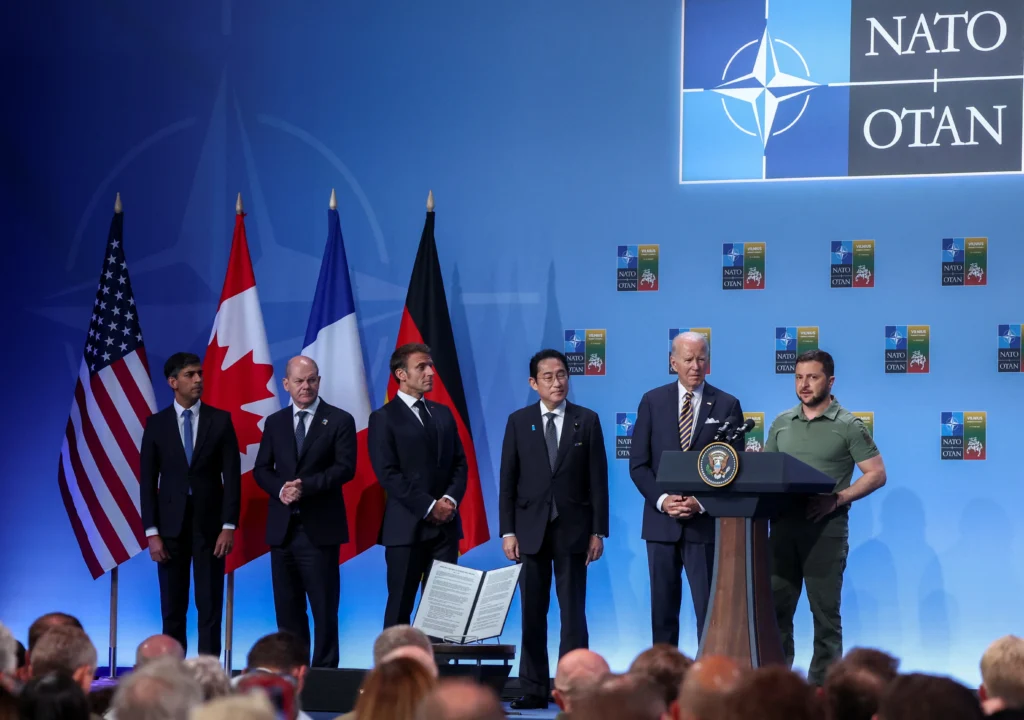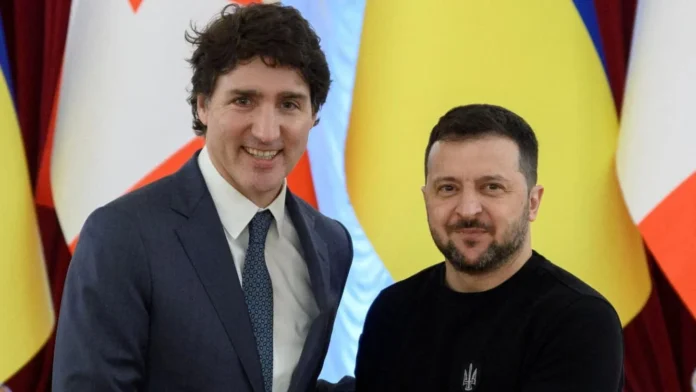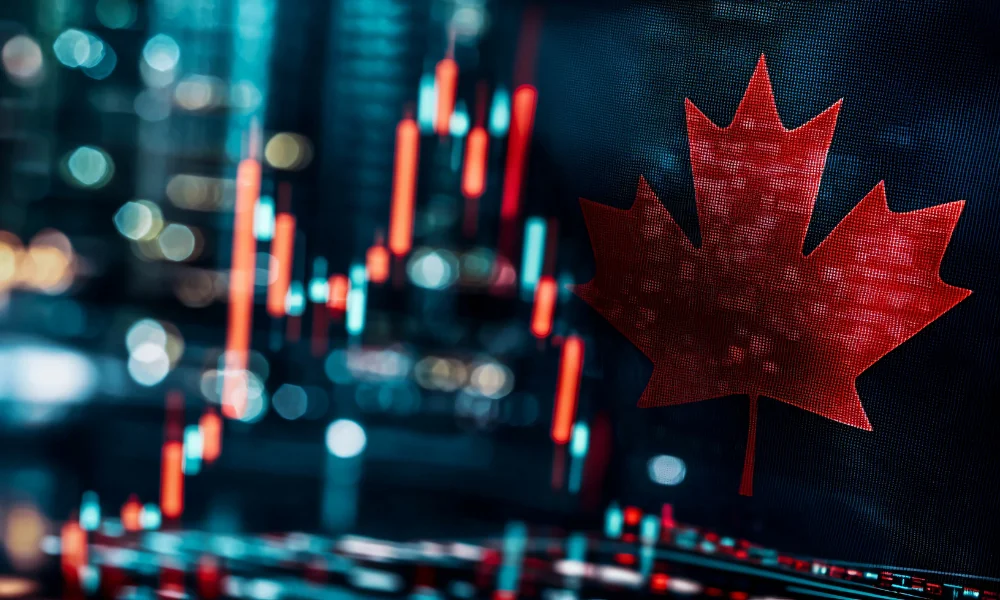Canada’s Position on Russia’s G7 Membership
Canada’s Stance on Russia in G7—Canada has firmly stated that Russia will not be returning to the G7. Foreign Affairs Minister Mélanie Joly reinforced this position at the Munich Security Conference, highlighting that Russia’s ongoing aggression, particularly in Ukraine, makes reinstatement impossible. The discussion about Russia’s potential return resurfaced after former U.S. President Donald Trump suggested its reentry. However, Canada and its G7 partners remain resolute in their opposition, citing Russia’s persistent violations of international law as a critical obstacle to its readmission.
Historical Context: Why Russia Was Removed from the G8
Russia was originally part of the Group of Eight (G8) but was suspended in 2014 following its annexation of Crimea. The move was a direct response to Moscow’s violation of Ukraine’s sovereignty, a decision that the G7 members deemed unacceptable.
Despite claims that Russia’s presence could have prevented further escalation, as suggested by Trump, Canadian leaders—including Conservative Party Leader Pierre Poilievre—maintain that Russia’s exclusion remains justified. The decision to keep Russia out reflects broader concerns about the country’s lack of accountability and continued military aggression in Ukraine.
Furthermore, international bodies such as NATO and the United Nations have consistently condemned Russia’s actions, reinforcing the notion that its readmission would undermine global diplomatic stability. Many experts argue that any shift in this position would signal a weakening of the G7’s commitment to democratic principles and international law.
The G7’s Commitment to Ukraine
The G7 continues to stand in solidarity with Ukraine, reinforcing diplomatic and economic measures against Russia. Joly stressed that any discussions about resolving the conflict must include Ukraine and European allies, ensuring that peace negotiations are conducted fairly and transparently.

In addition to economic sanctions, the G7 has provided billions of dollars in aid to Ukraine, supporting both its military and civilian infrastructure. Canada, in particular, has been a strong advocate for increasing defense support, including the provision of advanced military equipment and training programs for Ukrainian forces.
Canada’s Response to Potential U.S. Tariffs
Beyond the G7 debate, another pressing issue at the Munich conference was the potential for U.S. tariffs on Canadian goods. Joly highlighted Canada’s firm stance against such economic measures, stating that any tariffs imposed would be met with retaliatory actions.
Prime Minister Justin Trudeau previously announced a 25% retaliatory tariff on $155 billion worth of U.S. goods, should Washington follow through with its threats. The announcement had an immediate impact, with U.S. markets reacting negatively. According to Joly, this response demonstrated the interconnectedness of global economies and the power of strategic diplomacy.
Canada has also sought alliances with European Union leaders to form a united front against protectionist trade policies. Many economists warn that such tariffs could lead to a broader trade war, impacting global supply chains and driving up costs for consumers worldwide. The effects of these economic policies could be particularly severe for industries such as automotive manufacturing, agriculture, and technology, which rely on cross-border trade agreements.
Public Perception and Political Implications
Canada’s strong position on these issues has resonated with the public. Joly noted a significant shift in public opinion polls, with increased support for the Liberal government’s foreign policy approach. Canadians, she asserted, appreciate the government’s firm stance in defending national interests amid international tensions.
As geopolitical tensions rise, Canadian voters are becoming increasingly aware of the potential economic consequences of international trade conflicts. Many believe that strong diplomatic leadership is necessary to navigate these challenges while protecting Canadian jobs and industries.
Public sentiment also reflects growing concern about the implications of another Trump presidency. If Trump follows through on his tariff threats, many Canadians fear a prolonged period of economic uncertainty, which could impact employment rates, consumer prices, and overall market stability.
The Global Impact of Trade Tariffs
Trade tariffs remain a contentious political issue in the U.S. and Europe. U.S. Democratic Senator Andy Kim emphasized that while Trump promotes tariffs as a means of protecting American interests, public sentiment suggests otherwise. Surveys indicate that a majority of Americans believe tariffs lead to higher prices, making them an unpopular economic strategy.
Kim encouraged European and Canadian leaders to highlight the repercussions of such policies, reinforcing the idea that these measures could backfire politically for Trump.
Additionally, global economic analysts predict that prolonged trade disputes could weaken North American markets, leading to declining investor confidence and slower economic growth. The risk of retaliatory trade measures from Canada and the EU could exacerbate these challenges, creating a ripple effect across multiple industries.
The Broader Geopolitical Landscape
Beyond economic concerns, Canada’s foreign policy approach reflects a broader commitment to global stability. Maintaining strong relationships within the G7 is essential for coordinated responses to security threats, climate change, and technological innovation.
Experts suggest that weakening alliances within the G7 could empower authoritarian regimes, reducing the effectiveness of global diplomatic efforts. By standing firm on Russia’s exclusion and actively engaging with international partners, Canada aims to reinforce the G7’s role as a leader in global governance.
Conclusion: Canada’s Diplomatic Strategy
Canada’s firm stance on Russia’s G7 exclusion and its proactive approach to potential U.S. tariffs underscore the nation’s commitment to international stability and economic security. As global political landscapes shift, Canada’s leadership remains focused on defending democratic values, supporting Ukraine, and ensuring fair trade policies.
Moving forward, diplomatic unity among G7 members will be essential in addressing both geopolitical conflicts and economic challenges, reinforcing the group’s collective strength in global decision-making. Canada’s continued engagement in these discussions will play a critical role in shaping the future of international relations and economic stability.



